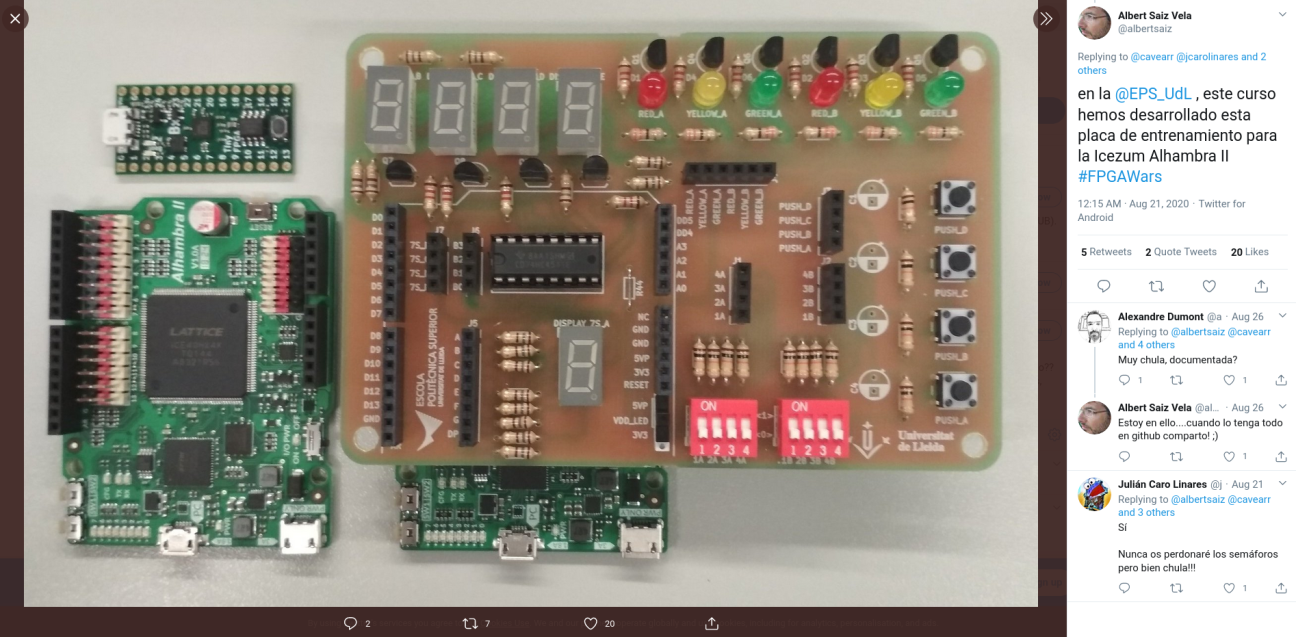For computer engineering students at the University of Lleida in Spain, having access to open source hardware lets them work at home, reducing the impact of the Covid-19 lockdown on their studies, says Albert Saiz Vela, Assistant Professor at the Electrical Engineering faculty.
Last year, Dr Saiz and colleagues overhauled their course in digital electronics for third-year students, focusing on the use of open source hardware. A EUR 2500 grant from the university helped them build training boards for their students. The production takes time, so in March only two students were able to work with the new hardware - and finish their Bachelor thesis at home.

“They finished all of their tasks at home, without having to come to the lab,” says Dr Saiz. That would have been impossible in other years, he explains, as the course would require students to use proprietary computer hardware at the university.
The faculty now has 24 training boards ready, meaning that now more of the students – who number about 30 to 35 – can continue their studies in this way.
Flexible and low-cost, in that order
The new open-hardware training boards cost about EUR 25, or less if manufactured at scale, the assistant professor told the Commission’s Open Source Observatory. Students have to combine these boards with another low-cost (EUR 49) open source computer board made by Alhambra Bits, a Spanish company run by hardware engineers with strong ties to universities in Spain. The company is based in Pinos del Valle, a small village some 40 km south of Granada.
Next year, Dr Saiz hopes that students can also choose to work with cheaper boards from TinyFPGA in the USA.
Low cost is one reason to choose open source hardware, says Mr Saiz. Far more important, however, is the resulting increase in flexibility, including being able to let students work when and where they want.
Encourage
According to the assistant professor, the open source software needed to work with programmable-hardware computer boards (field-programmable gate arrays or FPGAs) is gradually getting better. Examples include the compiler known as Yosys and the closely related open-hardware design editor IceStudio. The latter is an open source project led by award-winning professor Juan Gonzáles Gómez from Rey Juan Carlos University in Madrid.
Dr Saiz and others have published several papers on the use of open source hardware in education. It would most certainly help, he says, if the European Union would fund development of open source hardware for use in university computer science labs and other classrooms: “With some encouragement, these open-source tools can conquer labs across the EU.”
More information:
A low-cost development platform to design digital circuits on FPGAs using open-source software and hardware tools (IEEE Access paper)
Open-Source Hardware in Education: A Systematic Mapping Study (IEEE Access paper)

